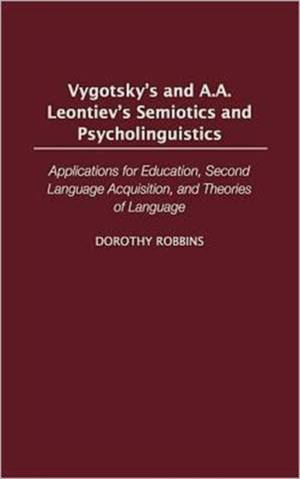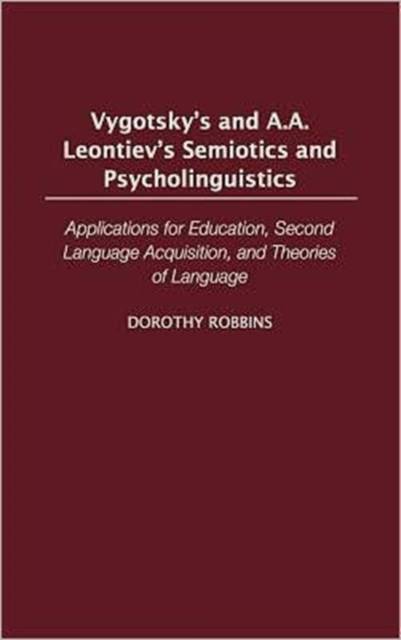
- Afhalen na 1 uur in een winkel met voorraad
- Gratis thuislevering in België vanaf € 30
- Ruim aanbod met 7 miljoen producten
- Afhalen na 1 uur in een winkel met voorraad
- Gratis thuislevering in België vanaf € 30
- Ruim aanbod met 7 miljoen producten
Vygotsky's and A.A. Leontiev's Semiotics and Psycholinguistics
Applications for Education, Second Language Acquisition, and Theories of Language
Social Market Foundation, Dorothy RobbinsOmschrijving
This work introduces Russian theories of language from the Vygotskian perspective, with a chapter by famed scholar A. A. Leontiev about Vygostky and Russian psycholinguistics. The holistic nature of Russian psychology is highlighted, viewing the personality development of each individual as a whole. Vygostky's interdisciplinary approach to education, termed pedology, is examined, as is the Zone of Proximal Development and how it is understood in Russian education and theory. The theory of constructivism within education in the West is compared with the Vygotskian understanding of Zone of Proximal Development. Much of the focus is on teaching and teacher ability. This work also opens a discussion rarely analyzed in the West within theories of language: code, representation, image, imagination, imitation, and mimesis. Also, Vygotskian thought is compared with Chaos Theory/Complexity Theory on a philosophical level.
Foreign language teachers and those teaching English as a second language will find this volume valuable, as will scholars and students in applied linguistics, cognitive psychology, semiotics, and the psychology or philosophy of language.Specificaties
Betrokkenen
- Auteur(s):
- Uitgeverij:
Inhoud
- Aantal bladzijden:
- 200
- Taal:
- Engels
- Reeks:
Eigenschappen
- Productcode (EAN):
- 9780313322242
- Verschijningsdatum:
- 30/11/2003
- Uitvoering:
- Hardcover
- Formaat:
- Genaaid
- Afmetingen:
- 154 mm x 242 mm
- Gewicht:
- 444 g

Alleen bij Standaard Boekhandel
Beoordelingen
We publiceren alleen reviews die voldoen aan de voorwaarden voor reviews. Bekijk onze voorwaarden voor reviews.











